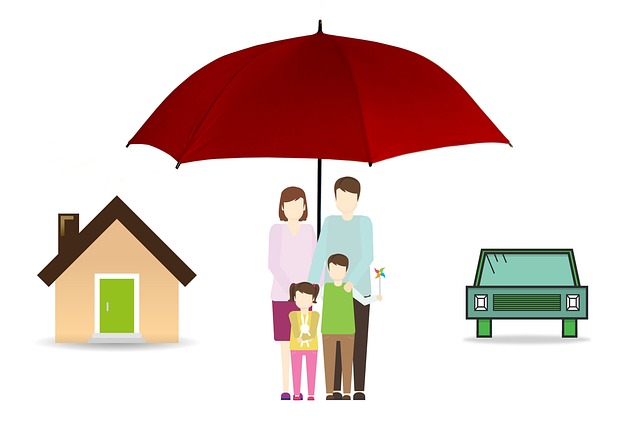The Importance of Proper Licensing and Insurance in Pest Control Services
Pest control is an essential service that helps maintain the health and safety of our homes and communities. However, not all pest control companies are created equal. When choosing a pest control provider, it's crucial to consider factors such as licensing, insurance, and certification. This article will explore why these elements are vital and how they contribute to effective and safe pest management in residential settings.

-
Has undergone necessary training and education in pest management techniques
-
Understands local regulations and environmental considerations
-
Is authorized to handle and apply pest control products safely
-
Has demonstrated knowledge of proper equipment usage and safety protocols
When hiring a pest control service, always ask for their license number and verify it with the appropriate licensing authority in your area. This simple step can help ensure you’re working with a legitimate and qualified professional.
What role does insurance play in pest control services?
Insurance is another critical aspect of professional pest control services. A reputable company should carry both general liability insurance and workers’ compensation coverage. Here’s why insurance matters:
-
General liability insurance protects homeowners from potential damages or injuries that may occur during pest control treatments.
-
Workers’ compensation coverage ensures that technicians are protected in case of work-related injuries or accidents.
-
Insurance provides peace of mind for both the homeowner and the pest control company, allowing them to focus on effective pest management.
Before hiring a pest control service, ask for proof of insurance and verify the coverage details. This precaution can save you from potential legal and financial complications down the line.
How do certifications enhance pest control services for homes?
While licensing ensures basic competency, certifications demonstrate a higher level of expertise and commitment to professional development. Some important certifications in the pest control industry include:
-
Board Certified Entomologist (BCE): Awarded by the Entomological Society of America, this certification indicates advanced knowledge of insect biology and control methods.
-
Associate Certified Entomologist (ACE): A mid-level certification that demonstrates practical knowledge of pest control techniques and regulations.
-
Green Pro Certification: Focuses on environmentally friendly pest control methods and sustainable practices.
-
QualityPro Certification: A comprehensive certification program that covers business operations, environmental stewardship, and consumer relations.
Certified pest control professionals are more likely to stay up-to-date with the latest industry trends, technologies, and best practices. This expertise can translate into more effective and efficient pest management solutions for your home.
What are the benefits of hiring licensed and insured pest control services for homes?
Choosing a licensed, insured, and certified pest control provider offers numerous advantages for homeowners:
-
Safety: Properly trained technicians are less likely to misuse pesticides or employ dangerous practices that could harm your family or pets.
-
Effectiveness: Licensed professionals have access to more potent and specialized products that may not be available to the general public.
-
Compliance: Professional services ensure that all pest control activities comply with local regulations and environmental guidelines.
-
Accountability: Licensed and insured companies are more likely to stand behind their work and address any issues that may arise.
-
Long-term solutions: Certified experts can develop comprehensive pest management plans that address the root causes of infestations, not just surface-level symptoms.
How can homeowners verify a pest control company’s credentials?
Before hiring a pest control service, take these steps to verify their credentials:
-
Ask for their license number and check it with your state’s pesticide regulatory agency.
-
Request proof of insurance and contact the insurance provider to confirm coverage.
-
Inquire about any additional certifications or specialized training.
-
Check online reviews and ratings from previous customers.
-
Contact local business associations or the Better Business Bureau for any complaints or unresolved issues.
What should you expect from a reputable pest control service?
A professional, licensed, and insured pest control company should provide:
-
A thorough inspection of your property before treatment
-
A detailed explanation of the pest issues and proposed treatment plan
-
Clear communication about potential risks and safety precautions
-
Written estimates and contracts outlining services and costs
-
Follow-up visits to ensure the effectiveness of treatments
-
Proper documentation of all services performed
| Service Aspect | Licensed & Insured Provider | Unlicensed Provider |
|---|---|---|
| Legal Compliance | Meets all regulatory requirements | May operate illegally |
| Product Access | Access to professional-grade products | Limited to consumer-grade options |
| Liability Protection | Covered by insurance | Homeowner assumes all risk |
| Expertise Level | Verified through licensing and certifications | Unverified or limited expertise |
| Long-term Solutions | Comprehensive pest management plans | Often focused on short-term fixes |
Prices, rates, or cost estimates mentioned in this article are based on the latest available information but may change over time. Independent research is advised before making financial decisions.
In conclusion, when it comes to protecting your home from pests, the importance of hiring a licensed, insured, and certified pest control service cannot be overstated. These credentials ensure that you receive safe, effective, and legally compliant pest management solutions. By taking the time to verify a company’s qualifications, you can safeguard your home and family while addressing pest issues with confidence and peace of mind.






